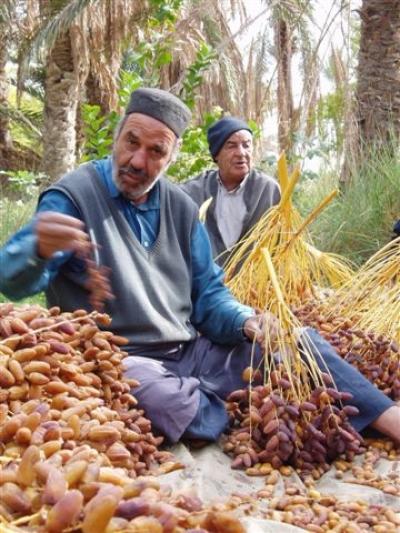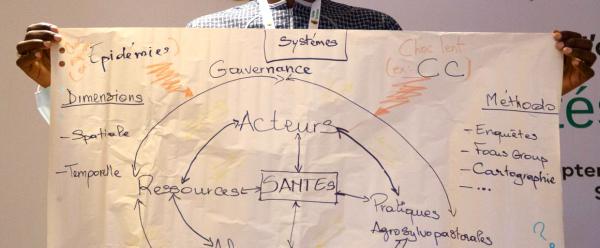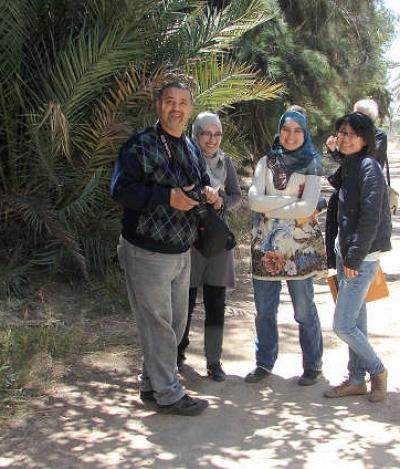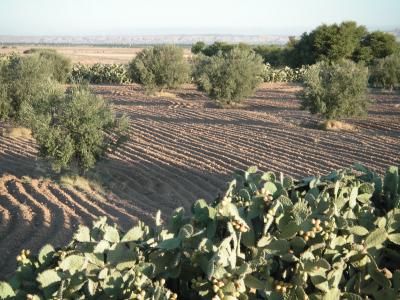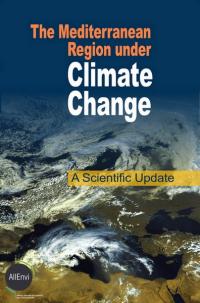Just out 3 November 2025
- Home
- Worldwide
- Our regional offices
- Mediterranean, Middle East and Balkan countries

Mediterranean, Middle East and Balkan countries
Water management and livestock production are core issues in the Mediterranean
CIRAD's activities in the region are backed by solid partnerships built over more than 15 years, in the fields of water management (Irrigated systems in North Africa platform in partnership - dP SIRMA), livestock production, and emerging and invasive disease control. Our plant biotechnology and agroecology resources and expertise serve to breed productive, more salt- and drought-tolerant crop varieties. We have also been heavily involved in value chain and territorial governance in the region over the past five years.
Emblematic projects and platforms in partnership for research and training
The dots show the countries in which CIRAD and its partners work. They do not show specific sites.
Key figures
- 9 expatriate researchers
- 20 PhD and Masters students supervised per year
- 100 missions per year
- 1 platform in partnership
Main research fields, services and expertise
- Integrated and territory-based management of water, irrigated systems and aquifer systems
- Management of agropastoral and silvopastoral systems in arid and semi-arid zones
- Agroecology and crop diversification in rainfed systems
- Crop improvement for abiotic stress tolerance
- Periurban and urban agricultural production system sustainability
- Agricultural innovation and local know-how
- Animal health and epidemiosurveillance
- Geographical indications (GIs), product quality and market access
- Diet and biodiversity for better food and nutrition security
- Territory-based food systems
- Territorial development
A few details
Nine CIRAD staff members are on assignments with partners in the region (Italy, Moroicco and Tunisia), including three with FAO in Rome.
Platform in partnership for research and training
- Irrigated Systems in North Africa - dP SIRMA
SIRMA has an international reputation, and comprises some 60 researchers, teaching staff members and PhD students. It covers the Western Mediterranean, and has a triple remit: research, teaching and development support.
Teaching and training
CIRAD researchers are involved in higher education, providing Masters and other diploma teaching for engineering colleges and universities in the Mediterranean. They supervise and guide students and interns, either from a distance or on the ground , particularly within the framework of the SEHMA Masters and dP SIRMA and training courses in Algeria and Morocco.
Vocational training is organized regularly by our researchers in the region. CIRAD can also provide vocational training for staff members from partner organizations.
CIRAD staff members also supervise theses and act as mentors, both in Montpellier and in Mediterranean countries.
Some publications
Les oasis en Afrique du Nord : dynamiques territoriales et durabilité des systèmes de production agricole
A thematic issue of Cahiers Agricultures, volumes 26 and 27, 2017-2018.
This issue, coordinated by CIRAD and the other partners in dP SIRMA, describes oases that are full of life, that face considerable constraints but that have a place in the changes currently underway.
Oases were long felt to be in decline, having been subject to profound, disruptive changes since the second half of the 20th century: emigration, urbanization, government projects and the arrival of investors. Conventional oases were joined by new agricultural extensions or projects, juxtaposing traditional and more modern forms of agriculture.
Despite their specific issues due to substantial climate constraints, oases also fit into current changes: the contrast between tradition and modernity, the changing roles of the State, local communirties and private players, recognition of territorial specificities, concerns about natural resources and the environment, etc. They are on the frontline of a more global debate on the ecological transition towards sustainable development.
Consult the issue on the Cahiers Agricultures website
The Mediterranean Region under Climate Change – A Scientific Update
CIRAD coordinated a section on agricultural management, livestock and food security in this collective work (2016) coordinated by Allenvi, which brought together 150 authors to reflect on the mechanisms and impacts of climate change and make recommendations for the Mediterranean, one of the most exposed regions.
Full text version available from Editions IRD
Flick through the book on line
Thematic website
Camélidés
A website devoted to the biology and rearing of large camelids (camels and dromedaries) and camel production chains.
Scientific publications
See all publicationsContact
CIRAD Regional Director for the Mediterranean, Middle East and Balkan Countries
Sandrine Dury
INRAE and Agreenium Representative
Avenue Agropolis
TA 179/04
34398 Montpellier Cedex 5 - France

























